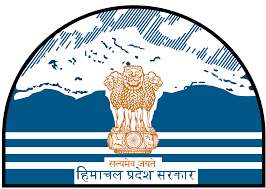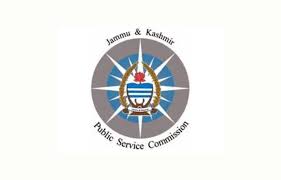Exam Syllabus
1. Anthropology
Definition and development of social and cultural anthropology
Types of culture change
Theories of religion
Types of Magic
Nature of Primitive economy
Family and Marriage
Kinship
Methodological approaches in anthropology
Structuralism
Classic evolutionism
Diffusionism
Functionalism
Indian Civilization
Concept of personality and culture
Problems in Tribal society
Biological/ Physical Anthropology
Theories of organic evolution
Stages of human evolution
Biological concepts of race
Scope of human genetics
Inheritance of genetic traits in man
Prehistoric Archaeology
Salient Features of Indus valley civilization
2. Botany
Algae
Fungi
Plant pathology
Viruses
Bacteria
Bryophyta
Pteridophyta
Gymnosperm
Angiosperms
Plant physiology
Biochemistry
Ecology
Respiration
Environmental pollution
Genetics
Cell biology
Molecular biology
Evolution
Economic botany
Biotechnology
Transgenic plants
3. Chemistry
Thermodynamics
Electrochemistry
Quantum mechanics
Structure of atoms
Periodic properties
Molecular orbital theory
Transition and inner-transition elements
Transition metal complexes
Nuclear chemistry
Stereochemistry
Free radical reactions
Analytical chemistry and data processing
UV and Visible spectroscopy
Infrared spectroscopy
Surface chemistry
Bioinorganic chemistry
Photochemistry
Supramolecular chemistry
4. Commerce
Financial Accounting
Corporate Accounting
Cost and Management Accounting
Business regulatory framework
Statistics and quantitative techniques statistics
Taxation and auditing
Management
5. Economics
Micro and Macro economics
Consumer theory
Market and Equilibrium
Banking
Money
Game theory
Public finance, revenue and budget
Trade theories
Exchange rate
Study of economic development
Poverty, inequality and development
Economic development
Globalisation
International trade
Sustainable development
Population and human development
Industrial development
Odisha economy
Quantitative methods
Differentiation, integration
Probability theory
Sampling
Estimation
6. Education
Philosophical foundation of education
Sociological foundation of education
Psychological foundation of education
Assessment, research, statistics
Modern trends in education
(Refer to sub-topics for in-depth syllabus)
7. English
British literature from Chaucer to contemporary period
Indian writing from 1930s to contemporary period
Indian classic literature
American literature from 1850s to contemporary period
World literature
Postcolonial literature
Literature of diaspora
Popular literature
Literature theory and criticism
Grammar in context
8. Zoology
Biology of Non-chordates
Biology of chordates
Cell biology
Genetics
Molecular biology
Microbiology
Physiology
Biochemistry
Endocrinology
Immunology
Evolution
Ecology
Economic zoology
Developmental biology
Animal taxonomy
Bio technology
Instrumentation and techniques
Biostatistics
Ethology
9. IRPM
Industrial relations
Labour legislation
Human resource management
Organizational behaviour
Labour administration
10. Home Science
Study of macro and micro nutrients
Food preservation and adulteration
Malnutrition and balanced diet
Human development
Child development
Adolescence, old age
Family studies
Decision making
Classification of family resources
Extension education
Communication
Programme planning
Textile fibres
Weaving
Finishing
Research methodology
11. Psychology
Biological bases of behaviour
Perception
Learning
Remembering and forgetting
Thinking and Reasoning
Intelligence
Personality
Motivation
Emotion
Basics of development
Life in preparation
Self and identity
Abnormality
Psychological disorders
Therapy and treatment
Educational psychology
Health psychology
Counselling psychology
Positive psychology
Social psychology
Organizational behaviour
Statistics and research designs
12. Sanskrit
History of Vedic literature
History of Sanskrit literature
Grammar
Drama, Kāvyas and Darśana
Alaṅkāraśāstra
Sāhityadarpaṇa
13. Mathematics
Algebra
Number theory
Linear algebra
Group theory
Ring theory
Real analysis
Numerical analysis
Differential equations
Numerical integration
Linear programming
Games and strategies
Analytical Functions
(Refer to sub-topics for in-depth syllabus)
14. Logic and Philosophy
Truth and Validity
Sentence and Proposition
Immediate interference
Fallacies
Predicate calculus
History of modern European philosophy
Indian philosophy
Moral philosophy
(Refer to sub-topics for in-depth syllabus)
15. Physics
Vector calculus
Special functions
Hamilton’s principle
Coupled oscillations
Electrostatics
Magnetostatics
Maxwell’s equations
Scattering, diffraction, radiation
Quantum mechanics
Statistical mechanics
Nuclear and particle physics
(Refer to sub-topics for in-depth syllabus)
16. Political Science
Nature of political theory
Evolution and growth
Behaviouralism
Political ideology: Liberalism, Socialism, Communism, Feminism and Environmentalism
Democracy and civil society
Political culture, socialization participation and modernization
Western political thought
Indian political tradition
Public administration
Administrative thinkers
International politics
Comparative politics and government
Indian government and politics
State, local government and politics in Odisha
(Refer to sub-topics for in-depth syllabus)
17. Sociology
Social processes and basic concepts
Institutions of society
Composition of Indian society
Major social institutions in India
Process of social change in India
Social movements in India
Sociology of gender
Gender and development
Sociology of environment
Social change and development
Social research
Sociology of health
Sociology of urbanisation
Sociology of education
18. Statistics
Probability
Probability distributions
Statistical methods
Estimation and testing of hypothesis
Sampling techniques
Designs of experiments
Industrial statistics
Time – series analysis


.jpeg)


